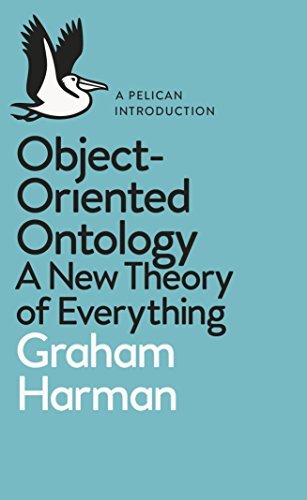What do you think?
Rate this book


271 pages, Kindle Edition
First published January 1, 2018
“From a OOO perspective, there is no truth: not because nothing is real, but because reality is so real that any attempt to translate it into literal terms is doomed to failure. We can invoke knowledge against Trump’s deceptions and evasions, but only insofar as we adopt a new definition of knowledge that incorporates elusive real qualities rather than directly masterable sensual ones. None of us can point to an instrument that clearly displays global warming or the world refugee crisis on a luminous screen, as patent truths that compel specific strategies for dealing with these issues. What we can do, however, is hold the Trumps of the world accountable for taking no account of reality, by which I mean the genuine disturbances in our world that indicate that climate and refugee problems must somehow be incorporated into the body politic.”
More generally, conservatives and progressives tend to debate too much whether human nature is fixed or malleable, as if human nature were the primary factor in politics.
By contrast, OOO is inclined to think that every reality supports multiple types of knowledge, but not an infinite number. More concretely, there may be five or six ways to different interpret a medical condition, and a similar half-dozen ways to approach a political dilemma, interpret Hamlet, or follow Emmanuel Kant with a new philosophy of one’s own. The customary postmodernist jump from one truth to infinite truths misses the more interesting option of a finite plurality of them.
This leads Morton to a fine insight about how very large finite amounts of anything are somehow more threatening than supposed infinite amounts of the same thing. For these ‘gigantic timescales [of hyperobjects] are truly humiliating in the sense that they force us to realise how close to Earth we are. Infinity is far easier to cope with. Infinity brings to mind our cognitive powers…’ And later on the same page: ‘There is a real sense in which it is far easier to conceive of “forever” than a very large finitude. Forever makes you feel important. One hundred thousand years makes you wonder whether you can imagine one hundred thousand anything.’
OOO’s account of the metaphorical and the literal is completely different from Derrida’s. Though we agree with him that there is no literal access to the thing-in-itself, we do not agree that this is because no thing-in-itself exists. For us, the difference between the metaphorical and the literal has to do with whether the bond between the object and its qualities is successfully severed (metaphorical) or whether the object is loosely or explicitly identified with those qualities (literal).
[…]
The situation as Derrida sees it is that everything that exists refers immediately to something else that exists: ‘from the moment there is meaning there are nothing but signs. We think only in signs.’ Here he is too quick to equate ‘we only think in signs’ with ‘there are nothing but signs’, as if the realm of being were one and same as the realm of thinking. […] The argument, in short, is that we never reach some final thing that shines in ‘luminous presence’, therefore everything must be a sign. What Derrida never considers is the OOO option: that signs do have an ultimate signified whose nature is precisely not to become present.